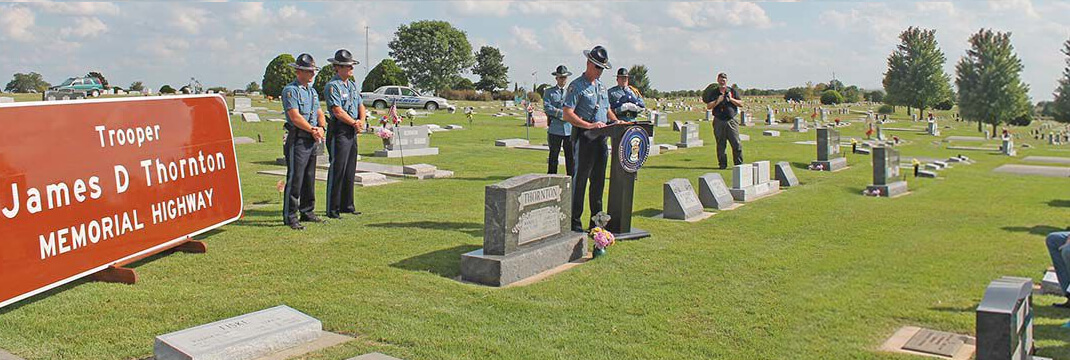
The psychological consequences of the military actions are often manifested through post-traumatic stress disorders that lead to serious difficulties in the adaptation of a person to the changing social environment. The case of a master sergeant Thornton is a vivid example of the challenges with the post-war social and psychological adaptation to the peaceful life that resulted in the problems with alcohol and broken family relations. Nevertheless, the successful implementation of a complex of actions aimed at the veteran’s social and psychological recovery can improve the situation. While the medical rehabilitation targets the lost functional and physical aspects of a human body, the social and psychological rehabilitation is likely to provide the adjustment mechanisms for the normal existence of the veteran in society, preventing him from the degradation. Therefore, the developed strategies correspond to the most critical needs of Thornton and present a well-reasoned guideline for his comprehensive recovery.
The military actions, acts of terrorism and other extreme life situations have not only long-term cultural and medical consequences but also social and psychological ones. Participation in the war operations sufficiently impacts the mentality of military men, and after the soldiers return from the deployment to a peaceful life, they are unable to quickly adapt to the daily routine. Litz and Orsillo (2016) state that, “the psychological, social, and psychiatric toll of war can be immediate, acute, and chronic”. Therefore, veterans have a distinct mentality that cannot perceive calmness. The inability to adapt to the living conditions of ordinary people affects the standard values of society. The purpose of the research paper is to analyze the psychological, social, and spiritual condition of a master sergeant Thornton, the veteran of the Iraq War, define his main needs, and develop a comprehensive and effective treatment plan.
Master Sergeant Thornton Case
Thornton had three six-month deployments in Iraq in the scope of Operation Iraqi Freedom. Although his physical condition seems rather satisfactory, one can suggest the specific traumatic impacts that are common for soldiers in similar circumstances. Indeed, Khan (2013) states that “advances in armor and medical technology have allowed an unprecedented proportion of troops to survive their injuries, but they suffer at historic levels from psychological wounds and brain injuries”. Due to the stress and different psychological traumas caused by the events and situations experienced during the war, the psychological balance of the man was sufficiently changed. However, the complicated nature of his condition is also multiplied by the likelihood of having post-traumatic stress disorder (PTSD). Another important factor relates to the patient’s response to the experienced events, his emotional stability, use of personal resources, and psychological mechanisms to react on the stressful and post-stressful situations. During the war operations, Thornton was not only the witness of violence but also its active participant. Both these factors caused the traumatic impacts on the soldier. Moreover, he lost his childhood friend at war, and this aspect heavily affected his psychological condition as well. Such symptoms as trouble sleeping, fluctuations in appetite, the flashbacks from the war occurring 1-2 times a week, aggression, depression, anger, broken connection with the family, and drinking indicate the development of the strong PTSD. These specificities clearly evidence that “PTSD treatment should incorporate assessment of comorbid conditions and the value of concurrent and sequential care” (Committee on the Assessment of Ongoing Efforts in the Treatment of Posttraumatic Stress Disorder, Board on the Health of Select Populations, Institute of Medicine of the National Academies, 2012, p. 14). Thus, the veteran whose case is considered has a number of needs which require immediate action of a professional, including: (a) social rehabilitation, (b) psychological adaptation, (c) reunion with family, (c) treatment of alcohol abuse, (d) spiritual comfort, and (e) professional rehabilitation.
Need 1: Social Rehabilitation
The conflict or violent behavior of the veteran in the social environment evidences the difficulties in his social adaptation to the new living conditions and undermines the quality of his post-war rehabilitation process. The manifestations of such a condition include the inability to accept the new rules of the game, unwillingness to compromise, and attempts to resolve the disputes of peace time by the power methods to which a military man has habituated. Being the former soldier who participated in three six-month deployments, Thornton approaches the peaceful life through the lens of the war metrics and transfers the military methods of his behavior to the day-to-day life.
In this regard, the need for the social rehabilitation for the veteran should comprise of a set of measures directed at the recovery of his social rights and statuses. This process is aimed at the recovery of not only Thornton’s capabilities in the social environment but also the conditions of activity violated or limited for any reasons. The purpose of the social rehabilitation strategy for the veteran refers to the socialization of the personality, restoration of his social and legal positions in community, along with moral and psychological balance and self-confidence. The most important task of the patient’s social rehabilitation includes provision of the social guarantees, control over the upgrade of the social privileges, legal protection, and formation of the positive public opinion, in line with involvement of the veterans into the system of social relations.
The relevant social organizations and participation in the events can contribute to the social rehabilitation of the veteran. The special centers of the social and psychological adaptation for the veterans are AfterDeployment Center or Army Survivor Outreach Services, as well as the veteran clubs. The preparation and organization of the public events and thematic days can be useful for promotion and propaganda of the brevity and courage of the veterans. In addition, the organization of the meetings of the veterans of the Iraq War will contribute to the faster veteran’s recovery from the experienced psychological trauma.
The Biblical point of view on the problem of the social adaptation emphasizes that the belief in God is the therapy that gradually leads to soul healing. The social adaptation can be maintained through the pastoral consultations while visiting the churches and reading the Bible to establish the spiritual contact with the God. Therefore, constant contacts with people around, stabilization of the relationships, and participation in the public events will be an effective strategy to meet the veteran’s needs of socialization.
Invite your friends and get bonus from each order they
have made!
Need 2: Psychological Adaptation
The disorders that are likely to occur after the endured psychological injury affect all levels of the human functioning, including physiological, personal, interpersonal and social interaction, and lead to the permanent changes in the veteran’s personality. The case of Thornton is the example of PTSD. Anger, violence, exasperation, irreconcilability, and high-level proneness to conflict, on the one hand, and fatigue and apathy, on the other hand, compose the natural reactions of an organism to the consequences of the long physical and nervous tension experienced during the military actions. Thornton reveals the common symptoms of PTSD, such as depression, anger, rage, sleeping difficulty, the flashbacks from the war, drinking, and alienation, to name a few. Apart from that, PTSD results into the violation of the family relations, as well as unpredictable life scenarios, which can negatively impact his further life. The war exerted the long-term psychological effects on Thornton. Therefore, an intervention is necessary to prevent the worsening the veteran’s condition, involving “efforts to reduce risk and enhance protective factors before the individual experiences trauma, or after a trauma and before symptom onset, in order to prevent the development of the disorder” (Defense Center of Excellence, 2013, p. 12).
The psychological support and treatment of PTSD in Thornton should comprise of the psychotherapy sessions and medical treatment. Blakeley and Jansen (2013) state that “mental health providers include psychiatrists, psychologists, social workers, licensed mental health counselors, and psychiatric nurse practitioners” (p. 12). Both services can be provided in hospitals or medical centers specialized on the psychological support for the veterans of war, for instance, Defense Centers of Excellence for Psychological Health and Traumatic Brain Injury, or Military Mental Health. Undoubtedly, psychotherapy is an integral part of the complex treatment of the PTSD. In this respect, the specialists have to organize the psychological rehabilitation within several stages. The first stage will include the formation of the confidential relations with the doctor, without which the treatment cannot be successful. The second stage will refer to the methods of the behavioral psychotherapy aimed at the neutralization of the key triggers that initiate the attacks. At the same time, the professionals should emphasize on the psychological correction of the sense of guilt, attacks of aggression and self-aggression. Except for the individual work with Thornton, the group sessions of psychotherapy might be utilized into the treatment framework that will be implemented as interaction of the doctor and a group of patients united by a common problem, namely, struggle with PTSD.
What is more, the Biblical perspectives about the psychological rehabilitation state that “without a knowledge of God and His Word, life on planet earth becomes purposeless, meaningless, and disheartening” (John 12:46; 15:5-7, Douay-Rheims version); “with God there is purpose and meaning to life” (John 8:12; 17:13; Rom 5:2; 8:28; 1 Pet 1:8, Douay-Rheims version). Thus, the decreased aggression, reduction in the frequency of the flashes of anger, and the elimination of the feeling of guilt in the patient will contribute to the effective psychological rehabilitation of the veteran.
Need 3: Reunion with Family
After the return from the war, reunion with families is an important aspect of the system of general psychosocial rehabilitation. Both psychologists and social workers should contribute to the process by working with the family of the veteran. In addition, family members need to support the veteran psychologically. Thornton should feel the moral support from his family. The attentive listening to the stories about the war scenes can greatly contribute to the reunion of the family. In this context, Thornton’s family members need to be attentive and patient to his current psychological discomfort, possible increased irritability, or long depressions because “when a service member returns home from a combat tour and is suffering from post-traumatic stress, he is often prone to anger quickly and flies into rages with little provocation” (Gundlach, 2014).
During the separation with the family caused by the deployment, both spouses changed, to a certain extent, and they should again habituate to each other. Moreover, children may contribute to the reunion of the family and psychological support of their father. All family members should understand that the post-stressful situation is a temporary state and the family support is vital for the successful rehabilitation and adaptation to the normal life conditions.
Engagement of social workers and social structures as well as the special strategies of the psychological, medical and social rehabilitation held by the trained psychologists, physicians and social workers will greatly facilitate the achievement of the set goals. This assistance can be proposed by such services and programs as “Airman and Family Readiness Flights (AFRF) or Army Reserve Family Programs can help to restore the family relations” (Scurfield, 2012, p. 3). The Bible supports the family reunion explicating that “for where two or three are gathered together in my name, there am I in the midst of them” (Matthew 18:20, Douay-Rheims version). The establishment of the stronger relationships with the family members, participation in the family life and effective cooperation of all family members will evidence the effectiveness of the implemented strategies.
Need 4: Alcohol Abuse Relief
The psychological consequences of the military operations of the Iraqi War, as well as chronic alcohol abuse not directly but through the accruing disturbances of the vegetative and neurohumoral regulation contribute to Thornton’s accelerated pathological aging. Having experienced the severe war complications, the master sergeant started abusing alcohol, drinking 6-12 beers per night 4-6 nights a week. The patient uses this ‘strategy’ as the means for relief of the symptoms that occur as a result of the traumatic and psycho-emotional background, represented by the anger, violence, stress, and low mood among other issues. This situation is in line with the facts reported by the Substance Abuse and Mental Health Services Administration (2012) that emphasizes that, “the data available for alcohol use show that some veterans use alcohol to self-medicate” (p. 1). Regardless of the temporary relieving effect, the veteran expressed the serious neurologic and psychopathologic clinical symptoms and functional disorders. In addition, the alcohol abuse provoked the severe forms of depressions in the client.
The strategy of alcoholism treatment includes the careful analysis of the situations in the scope of which a patient uses alcohol. With the help of the specialists, Thornton should learn how to control and eradicate his drinking behavior. The treatment strategy requires not only individual but also group and family therapy. For instance, one could refer for assistance of social workers or specialists of the alcohol abuse treatment and rehabilitation centers, including such organizations as Veterans Service Organization or Substance Abuse and Mental Health Services Administration.
The treatment strategy of alcoholism abuse will be implemented in light of several stages:
· Willing withdrawal from alcohol abuse and elimination of a hangover syndrome;
· Treatment of the post-abstinent period characterized by the periodically arising inclination to alcohol, mood swing, various somatic and neurologic disorders;
· Stabilization of the alcoholism remission, along with prevention of the possible recurrence of alcohol;
The alcohol treatment strategy will combine the pharmacological treatment and psychotherapy in order to ensure more thorough and holistic treatment procedure and outcomes. Due to the fact that it is impossible to cover all disorders caused by the war experience, the doctors should identify the main symptoms that leading to the development of Thornton’s alcohol abuse. To illustrate, aggression, anger and stress are the main symptoms in this regard. Evidently, addressing the alcohol abuse can solve the two immediate tasks set before the specialists. Specifically, the proposed approach will allow eliminating the desire to drink, or hangover syndrome, and the global tasks, for instance, helping the patient to return to his normal life, restore the integrity of his personality, and overcome the neurotic disorders. The Bible does not support alcohol abuse by the apt statements, such as “and be not drunk with wine, wherein is excess; but be filled with the Spirit” or “nor thieves, nor covetous, nor drunkards, nor revilers, nor extortioners, shall inherit the kingdom of God” (Ephesians 5:18, Corinthians 6:10, Douay-Rheims version). The reduction of the amount of drinks per night and per week as well as the softened hangover syndrome will explicate the progress addressing Thornton’s alcohol problem.

Top Writer Your order will be assigned to the most experienced writer in the relevant discipline. The highly demanded expert, one of our top 10 writers with the highest rate among the customers.
Hire a top writer for $4.40Need 5: Spiritual Comfort
Referring for the spiritual help to the veteran of the Iraqi War is the important and necessary component of his psychological rehabilitation. Wolf (2013) states that “the significant traumas that our veterans have suffered often make them feel cut off from God, from others, and from themselves”. The spiritual discomfort and loss of the belief in God can have detrimental impact on Thornton’s health in general, decrease his ability to believe in the better future, and spoil his relationships with the family members and close friends.
For this reason, Thornton should restore his belief in God, eliminate the anger, aggressiveness, and violence developed because of the military operations in Iraq. With the assistance of counselors of the faith-based ministries and churches, the client will be able to change the attitude to people around and develop optimistic perception of the world. The veteran will have an opportunity to understand that aggression and anger come from the devil, while calmness and love – from the God, and that the absence of anger will allow starting the quiet conversation without anger. In addition, the church counselors should explain that the God’s love and favor can be achieved by the sincere prays and the calm state of mind. The learning of the Bible will be valuable to restore the spirituality and the soul comfort. In this respect, the Scripture asserts: “but grow in the grace and knowledge of our Lord and Savior Jesus Christ to Him be the glory, both now and to the day of eternity” (Peter 3:18, Douay-Rheims version). The calmness, absence of anger, as well as quite a speech without the flashes of aggression will show the effectiveness of the chosen strategy for the veteran.
Need 6: The Professional Rehabilitation
After three six-month deployments, the master sergeant should consider the change of occupation. The professional rehabilitation of the veteran entails the implementation of the measures aimed at restoration of Thornton’s psychologic balance and his professional skills at the same time. In case of the inability to further continue the deployment practices, it is necessary to organize his retraining and preparation for the other, easier duties in the peaceful life, namely, the so-called “occupational retraining”. Such occupational training can be conducted by the service centers, for example, Military Spouse Corporate Career Network (MSCCN). The strategy and further employment will allow the veteran to recover faster and feel productive for the society. The assumption is in line with Prudential Financial, Inc. (2012) that ascertains that, “veterans are looking to employers to not only nurture their career, but also support their transition to civilian life and accommodate any health challenges they might be facing” (p. 2). As a result, Thornton can receive a profession of a school or university teacher lecturing on the war issues or become a church pastor or counsellor of a faith-based ministry and help people who encountered similar difficulties of adaptation to the peaceful life. The Bible supports the desire of people to be educated and re-educated and receive a new profession: “that the man of God may be competent, equipped for every good work” (Timothy 3:17, Douay-Rheims version).
Conclusion
The case of master sergeant Thornton shows that the participation in wars impacts on the human psychology, social status, spirituality, and the ability to build the strong relationships with the people around. The problem of the social and psychological rehabilitation and adaptation of the veteran to the civil living conditions and activities is vital, and should be addressed with regard to its complex nature with the relevant means. The introduced rehabilitation plan discussed the most vital needs of the veteran and the strategies to meet these needs in a thorough and holistic manner, including reference to the Biblical perspective. In order to succeed in the comprehensive rehabilitation of the client, it is necessary to use the services of the social and psychological rehabilitation organizations, social defense of the veterans, and religious organizations. In addition, the meetings of the veterans of the Iraq War will help Thornton to recover from the experienced psychological trauma easier and faster. Finally, the family support plays a crucial role in the rehabilitation of the veteran.
Apart from that, Thornton should overcome his alcohol addiction through the aforementioned methods, such as the combined pharmacological and psychological therapies. Building of the strong relationships with God can establish the spiritual comfort of the client. Moreover, professional retraining will allow the veteran an opportunity to rediscover his capabilities and skills in the scope of a new profession or qualification. Thus, the medical and psychological adaption as well as a social support should compose the main rehabilitation directions for Thornton.



